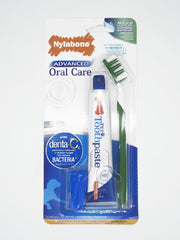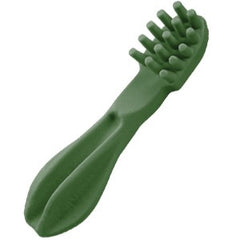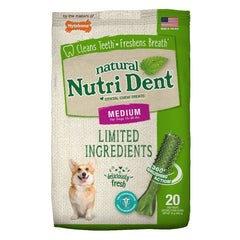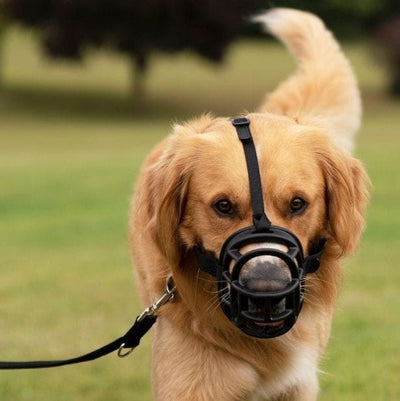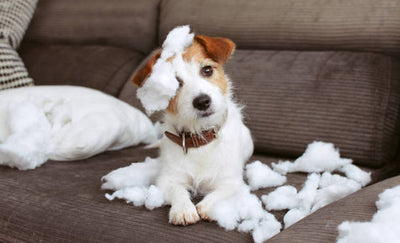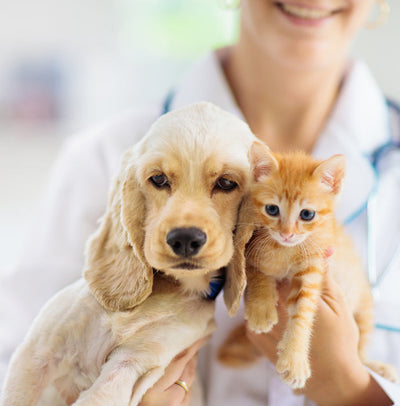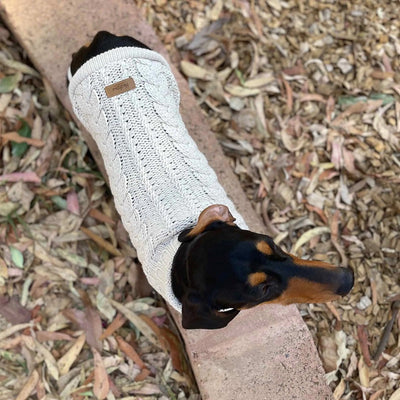
If you've noticed that your furry friend's breath is less than fresh, it could be a sign of an underlying health issue.
Bad breath in dogs can be caused by a variety of factors, from dental problems to digestive issues.
In this guide, we'll explore the common causes of bad breath in dogs and provide tips on how to prevent, identify and treat the issue.
Understand the Causes of Bad Breath in Dogs.
Bad breath in dogs can be caused by a variety of factors, including dental problems, digestive issues, and underlying health conditions. Poor dental hygiene is one of the most common causes of bad breath in dogs, as bacteria can build up in the mouth and cause an unpleasant odor. Other causes may include gum disease, kidney disease, or respiratory infections. It's important to identify the underlying cause of your dog's bad breath in order to effectively treat the issue.
What is Halitosis in Dogs?
Halitosis in dogs refers to bad breath or foul-smelling breath. It is a common condition that can occur in dogs due to various reasons, including poor oral hygiene, dental disease, periodontal disease, tartar buildup, gum infections, gastrointestinal issues, or other underlying health problems.
Dogs can develop halitosis when food particles, bacteria, and saliva accumulate in their mouth, leading to the formation of plaque and tartar on their teeth. Over time, this can result in dental issues such as gum inflammation, tooth decay, and tooth loss, which can contribute to bad breath.
Halitosis in dogs can also be caused by gastrointestinal problems, such as stomach or intestinal disorders, which can produce odorous gases that are released through the mouth. Certain systemic health conditions, such as diabetes, liver disease, or kidney disease, can also affect a dog's breath odor.
Regular dental care, including tooth brushing, professional dental cleanings by a veterinarian, and providing appropriate dental chews or toys, can help prevent and manage halitosis in dogs. Additionally, addressing any underlying health issues and providing a balanced diet can also help improve a dog's breath odor. If your dog has persistent halitosis, it's important to consult with a veterinarian for proper diagnosis and treatment.
Regular Brushing and Dental Care.
One of the most effective ways to get rid of bad breath in dogs is to establish a regular dental care routine. This includes brushing your dog's teeth at least twice a week with a toothbrush and toothpaste specifically designed for dogs.
You can also provide dental chews or toys that help clean their teeth and freshen their breath.
Regular dental check-ups with your veterinarian can also help identify and treat any underlying dental issues that may be causing bad breath.
Provide Healthy Food and Treats.
 and other health issues. Instead, opt for high-quality dog food that is specifically formulated to promote good dental health. You can also give them dental chews or treats that are designed to freshen their breath and clean their teeth. Be sure to read the labels and choose products that are safe and effective for your dog.
and other health issues. Instead, opt for high-quality dog food that is specifically formulated to promote good dental health. You can also give them dental chews or treats that are designed to freshen their breath and clean their teeth. Be sure to read the labels and choose products that are safe and effective for your dog.
What are the Best Products to Remove Plaque Build up in Dogs?
PlaqueAway is suitable for dogs and cats and is recommended for use daily as a preventative and as a way of reducing and assisting with symptoms of dental disease and gum health. Simply administer PlaqueAway to your pets food according to the weight of your pet.
PlaqueAway is a convenient & easy to use powder. Simply add the recommended dose, based on your pet's weight, into their food daily.
Prozym toothpaste kit for dogs and cats. Simply apply the chicken flavoured toothpase to a toothbrush designed to fit over your index finger.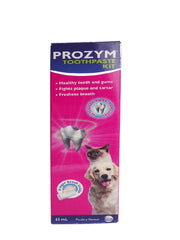
Containing the special ingredient RF2 to help fight the biofilm created by bacteria.
Hill's Science Diet Adult Oral Care dry dog food provides precisely balanced nutrition for dental and complete health.
-Clinically proven kibble technology to reduce plaque & tartar
-Daily dental protection to freshen breath
-Clinically proven antioxidant benefits
-No artificial colours, flavours, or preservatives
Recommended For:
Protection from plaque and tartar buildup in adult dogs.
Nutri Dent's all natural ingredients dental chews features 360-degree scrubbing nubs to clean your dog's mouth & teeth from every angle.
Easy on dogs with allergy intolerance as they have only a handful of ingredients, are preservative free and have no artificial colours or flavours.
A great one for chewing in the house!
A Lickimat is a type of feeding and enrichment tool for pets, especially dogs and cats. It is a flat, BPA free food grade silicone mat with small ridges and grooves that are designed to hold and spread pet food, treats, or other spreadable substances like peanut butter. The raised texture featured on Lickimats has the added benefit of helping to keep tartat at bay. Licking can help your dog produce saliva. Saliva contains enzymes that can help to kill bacteria on teeth and gums!
spreadable substances like peanut butter. The raised texture featured on Lickimats has the added benefit of helping to keep tartat at bay. Licking can help your dog produce saliva. Saliva contains enzymes that can help to kill bacteria on teeth and gums!

Turkey is rich in amino acids, protein, calcium, glucosamine and is highly desirable for dogs with sensitivities.
Regular Vet Check-Ups.

One of the most important things you can do to prevent and treat bad breath in dogs is to schedule regular check-ups with your veterinarian.
Your vet can examine your dog's teeth and gums, identify any underlying health issues that may be contributing to bad breath, and recommend appropriate treatments. They can also provide guidance on proper dental care and recommend products that can help freshen your dog's breath and improve their overall oral health.
Regular check-ups can help catch any potential problems early, before they become more serious and difficult to treat.
Address Underlying Health Issues.
Bad breath in dogs can be a sign of underlying health issues such as dental disease, gastrointestinal problems, or kidney disease. It's important to address these issues in order to effectively treat bad breath. Your veterinarian can help identify any underlying health issues and recommend appropriate treatments. In some cases, dietary changes or medication may be necessary to address the underlying issue and improve your dog's breath. Don't ignore bad breath in your dog, as it could be a sign of a more serious health problem.
© weknowpets 2023


